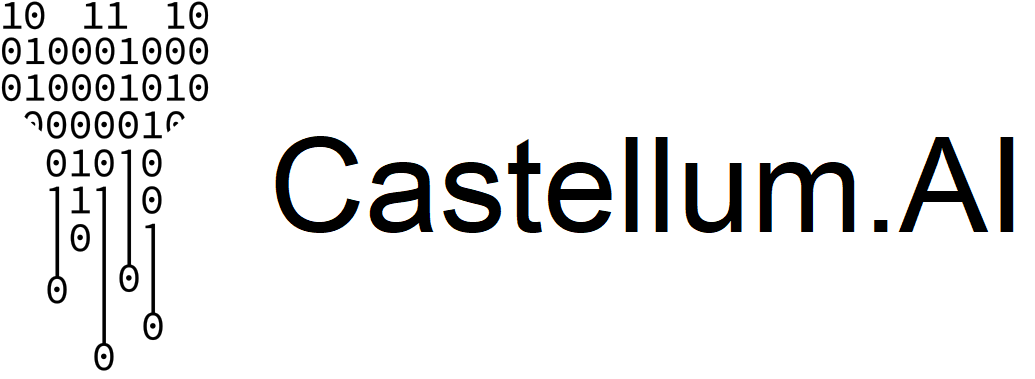Want to be ahead of the headlines?
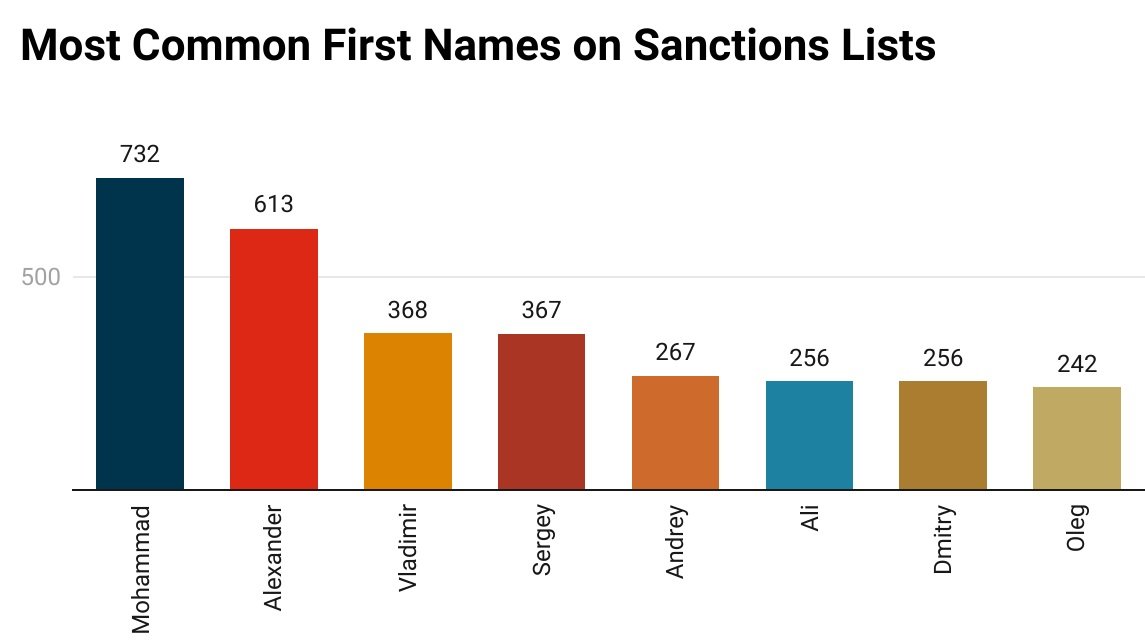
The Mohammad Bias: Watchlisting of Muslim Names
As of February 2023, the world’s most referenced sanctions authorities listed about 18,500 different individuals. Across this global data set, one name appears more than any other: Mohammad. This is despite the deluge of Russia-focused sanctions that began in March of 2022 after Russia’s invasion of Ukraine.

Supply Chain Compliance
Supply chain compliance refers to policies and procedures to ensure that a company’s suppliers and vendors are not subject to sanctions, export controls or other restrictions imposed by national laws. Violations of relevant restrictions can occur at any point in the supply chain, including the sourcing of raw materials, production, transportation or distribution of goods.

Announcing LIISA! Our Legal Identity Intelligent Suffix Adjudicator
Our new data enrichment process — LIISA — improves your ability to surface relevant watchlist results while minimizing false positives. By intelligently building context-based aliases otherwise absent from government watchlists, you can accurately search partial entity names.
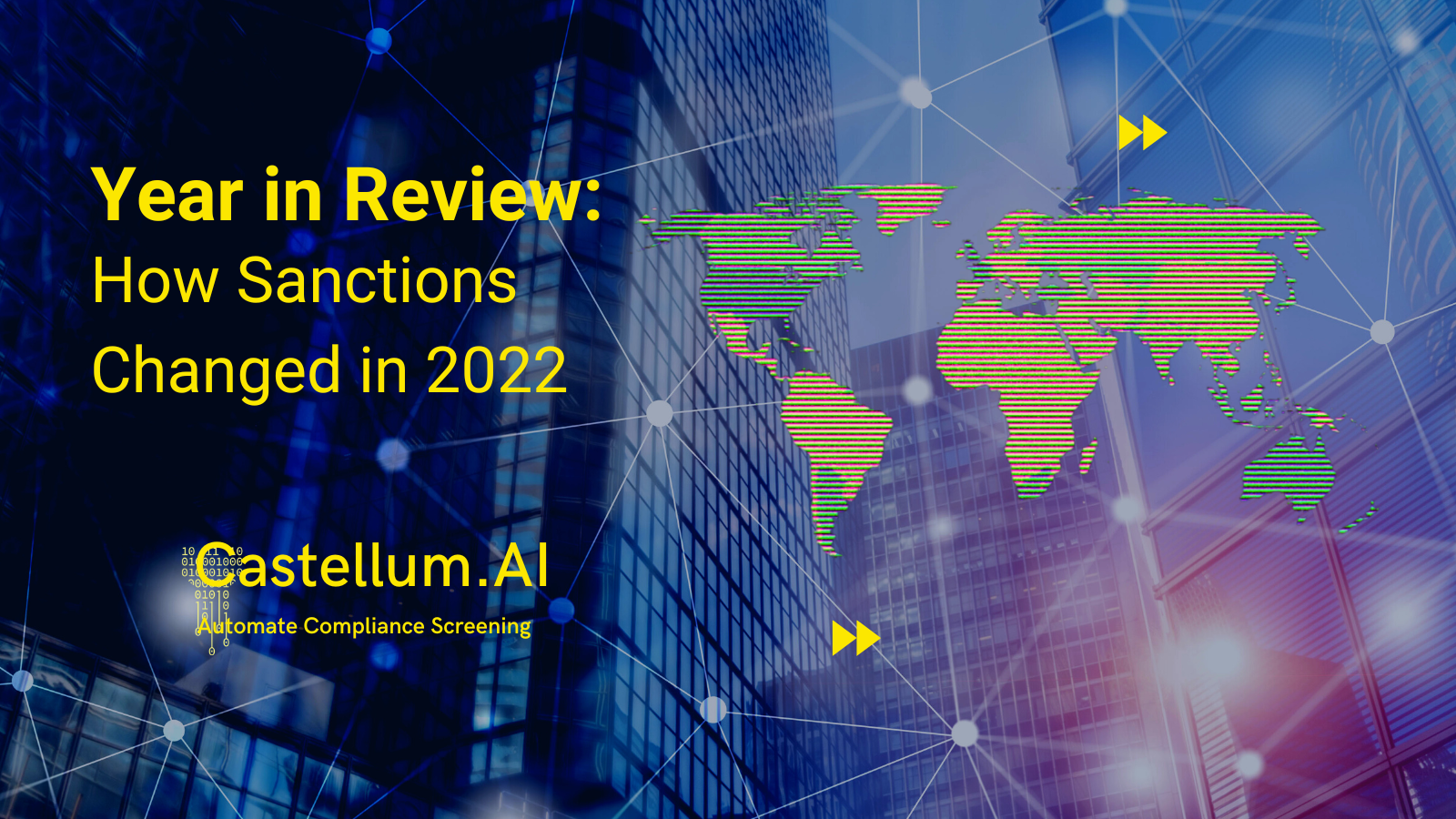
Year in Review: 2022 Sanctions in 15 Charts
Sanctions globally grew significantly in 2022, with Russia dominating headlines. Meanwhile, sanctions targeting human rights abuses and corruption took center stage while targeted sanctions against Iran, Myanmar, and Belarus continued apace. The impact for 2023? Increased enforcement and fines as evasion efforts increase, sanctions on Iran are reinvigorated, and crypto sanctions become commonplace.
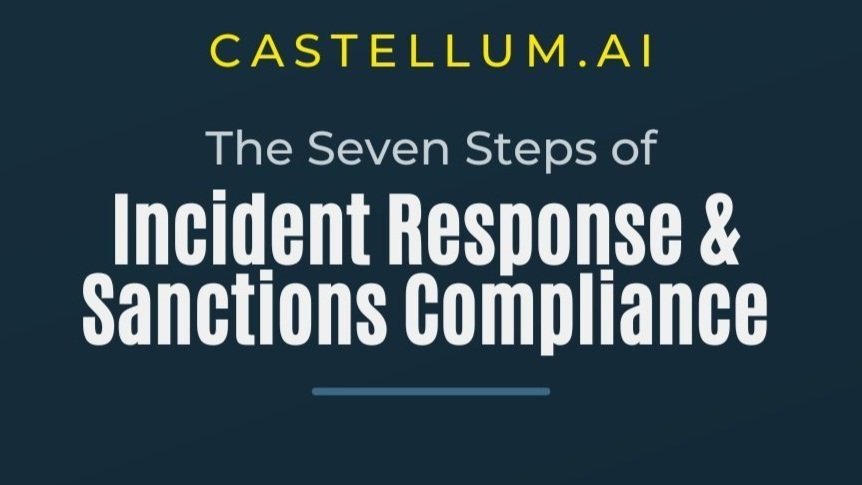
Ransomware Response and Sanctions Compliance
This step-by-step guide highlights exactly when sanctions compliance requirements are triggered during a ransomware attack. Ensuring that ransom payments are not directed to sanctioned actors, like REvil, enables incident response firms to avoid sanctions violations and cyber insurance providers to respond to claims.
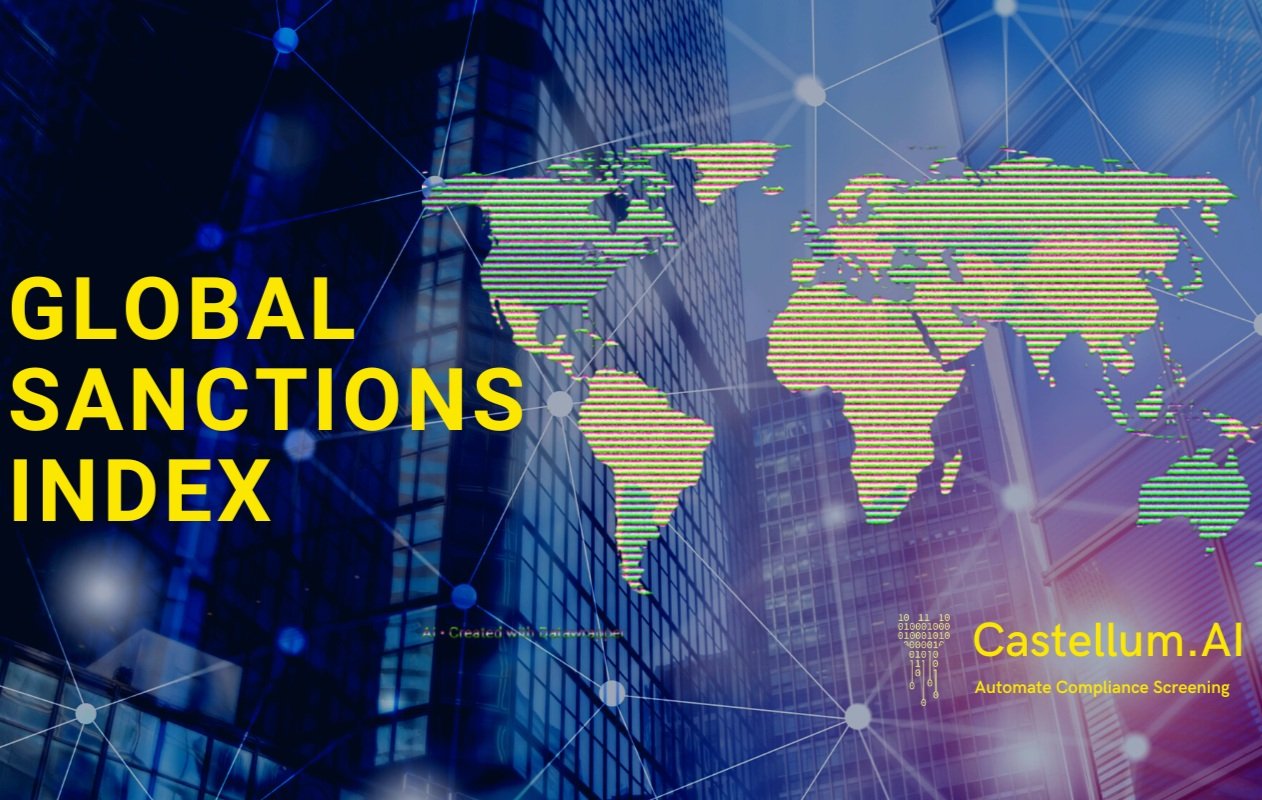
How to Use the Global Sanctions Index in Country Risk Ratings
Learn how to use the Global Sanctions Index backing dataset to inform country risk ratings, identify sanctions compliance gaps across countries of operation, and identify which countries prioritize fighting financial crime.

Compliance in the UAE: Sanctions Screening Guide
A complete guide on how to comply with sanctions screening requirements in the UAE. Which companies have to screen sanctions, and which sanctions have to be screened? This depends on your business, your customers, and your suppliers.

ENABLERS Act: What it Means and How to Prepare
The ENABLERS Act is a proposed law in the United States that closes loopholes which allow “enablers” to launder illicit funds in the US. The law was prompted by scandals, including the Panama Papers, which showed the extensive role played by US attorneys, investment advisors and company service providers in helping move illicit funds through and into the US. The act will place strict requirements on: attorneys, law firms and notaries, trusts and company service providers, third party payment service providers, investment advisors, sellers of art, antiques and collectibles, title insurance companies, public relations, marketing and communications professionals providing clients with anonymity and certified public accountants and public accounting firms.

Why Doesn’t India Use Sanctions?
Nearly every large country has an unilateral sanctions program. Except India. New Delhi’s reluctance to use sanctions as an economic tool is in part due to its own history as a target of sanctions. But how does this policy interact with foreign sanctions, such as those against Russia or Iran? And, what does this mean for Indian businesses?
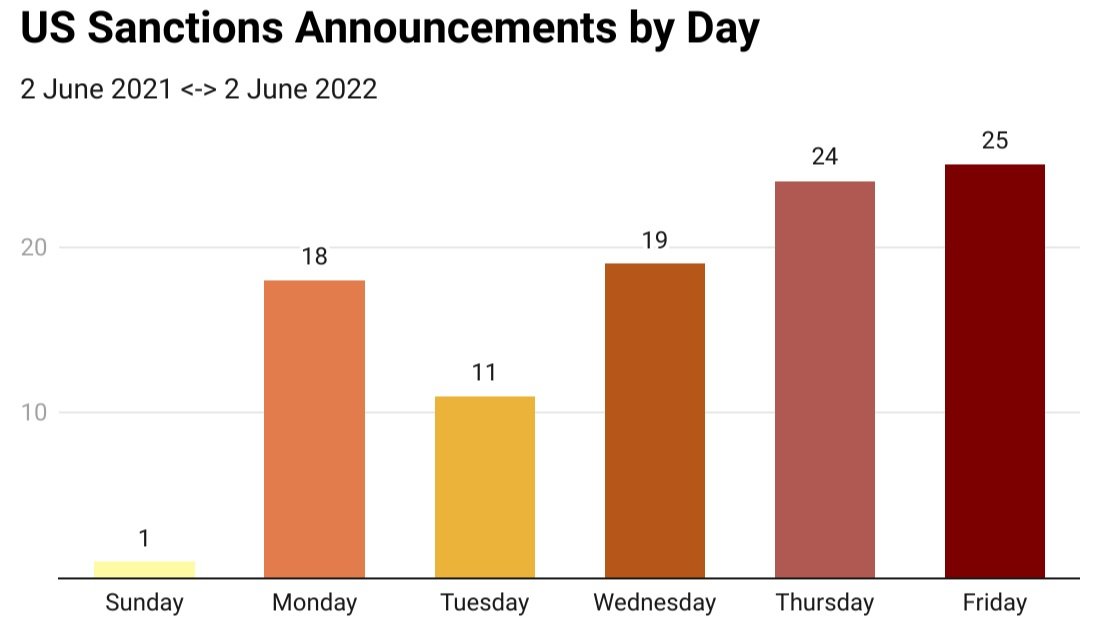
What is OFAC’s favorite day for sanctions?
OFAC has no public schedule for which day it publishes new sanctions, but there is a clear favorite: Friday. From 2 June 2021 to 2 June 2022, OFAC issued 98 separate sanctions announcements, with Thursdays and Fridays accounting for 50% of total announcements. But, this practice enables sanctions, creating a gap between announcement and implementation.
